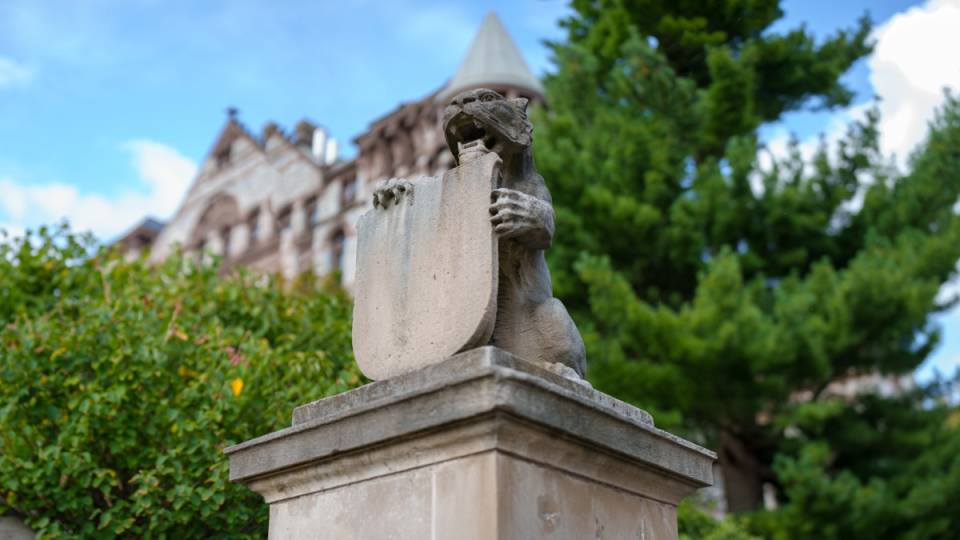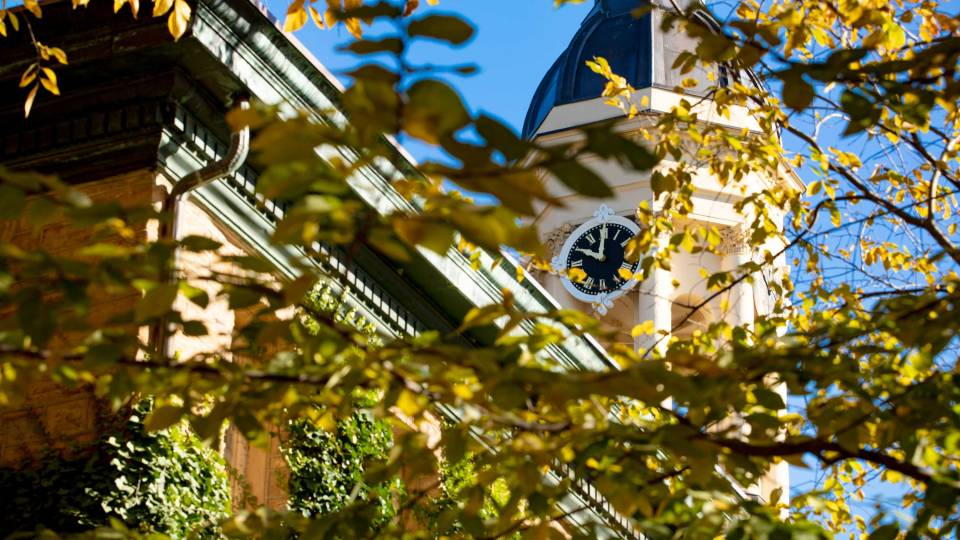Twelve scholars from disciplines spanning engineering, the sciences, and the social sciences have been named Presidential Postdoctoral Research Fellows at Princeton.
These scholars are poised to become leaders in their fields, said Dean of the Faculty Gene Jarrett, who called the fellows program “an outstanding demonstration of Princeton’s ability to attract the most promising researchers from all sectors of society and all parts of the world.”
The Presidential Postdoctoral Research Fellows program is intended to recognize and support outstanding scholars who have been historically and are presently underrepresented in the academy or in certain disciplines. Financial support is provided for up to two years at full salary.
“Through the leadership of Frederick Wherry, who was recently appointed to direct this program while serving as vice dean for diversity and inclusion in the Office of the Dean of the Faculty, I am confident that the fellows will have a substantial impact on our University in the near term and on higher education in the long term,” Jarrett said. Former and current members of the Faculty Advisory Committee on Diversity reviewed the nominations on behalf of the Dean of the Faculty.
“I really enjoyed meeting this new cohort at our fall orientation at Prospect House,” said Wherry, the Townsend Martin, Class of 1917 Professor of Sociology. “We know that excellence increases when diversity does. Research papers are more impactful and improved approaches to teaching become imaginable. We’re excited about the possibilities for the academy in the long-term.”
The 2022 Presidential Postdoctoral Research Fellows are listed below.

Francisco Apen, Diane-Jo Bart-Plange, Rodolfo Brandão, Diag Davenport
Francisco Apen joins the Department of Geosciences. His research asks how Earth’s first continents came to exist during the Archean eon more than 2.5 billion years ago and subsequently evolved into the state we see them today. Apen holds a Ph.D. in geochemistry from the University of California-Santa Barbara and a B.Sc. in geology from the University of California-Davis. He is advised by Blair Schoene, professor of geosciences.
Diane-Jo Bart-Plange joins the Department of Psychology, where she plans to examine how interpersonal and institutional racism interact and impact racial and ethnic minority students’ well-being and sense of belonging. Bart-Plange holds a Ph.D. in social psychology from the University of Virginia and a B.A. in African and African American studies and psychology from Washington University in St. Louis. She is advised by J. Nicole Shelton, the Stuart Professor of Psychology.
Rodolfo Brandão joins the Department of Mechanical and Aerospace Engineering, with a research focus on the theoretical modeling of physical phenomena, especially those involving fluid dynamics and wave phenomena. Brandão holds a Ph.D. in mathematics from Imperial College London and an M.Sc. and B.Sc. in physics from Federal University of Pernambuco. He is advised by Howard Stone, the Donald R. Dixon ’69 and Elizabeth W. Dixon Professor of Mechanical and Aerospace Engineering and department chair.
Diag Davenport joins the School of Public and International Affairs. His current research uses tools from economics, psychology and machine learning to tackle inequities in a range of areas, including criminal justice and startup investing. Davenport holds a Ph.D. in behavioral science from the University of Chicago Booth School of Business, an M.S. in mathematics and statistics from Georgetown University, and a B.S. in economics and B.S. in management, both from Pennsylvania State University. He is advised by Betsy Levy Paluck, professor of psychology and public affairs.

Camilo Hernández, Jodi Kraus, Francisco Lara-García, Uyen Mai
Camilo Hernández joins the Department of Operations Research and Financial Engineering, where his research focuses on financial engineering, primarily in the field of stochastic control and its applications. Hernández was a Chapman Fellow in Mathematics at Imperial College London and holds a Ph.D. in operations research from Columbia University and an M.Sc. in mathematics, a B.Sc. in economics, and a B.Sc. in mathematics, all from Universidad de los Andes. He is advised by Ludovic Tangpi, assistant professor of operations research and financial engineering.
Jodi Kraus joins the Department of Molecular Biology, advised by Sabine Petry, associate professor of molecular biology. Kraus’ research interests include biophysics and cell biology, particularly related to understanding structure, function and regulation of the cytoskeleton during dynamic cellular processes like cell division. Kraus holds a Ph.D. in physical chemistry from the University of Delaware and a B.Sc. in chemistry from Drexel University.
Francisco Lara-García joins the Department of Sociology, where his research focuses on Latinx immigrants in the U.S. to elucidate how differences in institutions shape integration trajectories. Lara-García holds a Ph.D. in sociology from Columbia University, a master’s in urban planning from Harvard University’s Graduate School of Design, and a B.A. in sociology, Latin American studies and political science from the University of Arizona. He is advised by Filiz Garip, professor of sociology and public affairs.
Uyen Mai joins the Department of Computer Science, where she plans to leverage her expertise in species evolution to develop more realistic models of cancer evolution. Mai holds a Ph.D. in computer science from the University of California-San Diego and a B.S. in computer science from Portland State University. She is advised by Ben Raphael, professor of computer science.

Victoria Muir, Tiffany Nichols, Julia Wilcots, Muni Zhou
Victoria Muir joins the Department of Chemical and Biological Engineering, where she will expand on her expertise in soft granular materials to explore a new application — using granular hydrogels to investigate bacterial and phage community interactions in real-time. Muir holds a Ph.D. in bioengineering from the University of Pennsylvania and a B.S.E. in chemical and biomolecular engineering from the University of Delaware. She is advised by Sujit Datta, assistant professor of chemical and biological engineering.
Tiffany Nichols joins the Department of History, where she plans to focus on the history of siting highly precise, large-scale scientific instruments. She will also explore the evolving meaning and scope of "clean-up" at the Hanford Nuclear Reservation in Hanford, Washington. Nichols holds a Ph.D. in the history of science from Harvard University, a J.D. from the University of Virginia’s School of Law, and a B.S. in electrical engineering from the University of Virginia. She is advised by Angela Creager, the Thomas M. Siebel Professor in the History of Science, professor of history and department chair.
Julia Wilcots joins the Department of Geosciences where she plans to focus on a quantitative approach to interpreting Earth history from carbonate rocks. Wilcots holds a Ph.D. in geology, geochemistry and geobiology from MIT and a B.S.E. in civil and environmental engineering from Princeton, Class of 2016. She is advised by Adam Maloof, professor of geology.
Muni Zhou joins the Department of Astrophysical Sciences, where she plans to conduct the first-principles study on the origin and evolution of cosmic magnetism and to branch into new research areas at the intersection of plasma physics and astrophysical applications. Zhou holds a Ph.D. in nuclear science and engineering from MIT and a B.Sc. in physics from Zhejiang University. She is advised by Matthew Kunz, associate professor of astrophysical sciences.







